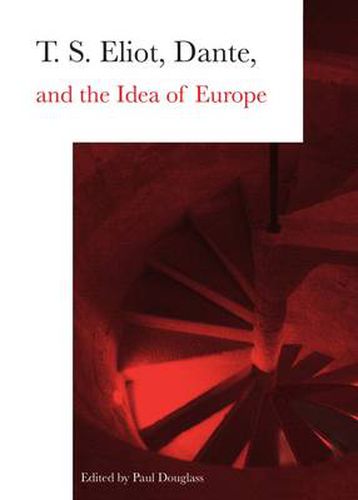Readings Newsletter
Become a Readings Member to make your shopping experience even easier.
Sign in or sign up for free!
You’re not far away from qualifying for FREE standard shipping within Australia
You’ve qualified for FREE standard shipping within Australia
The cart is loading…






T. S. Eliot greatly enhanced Dante’s profound influence on European literature. The essays in this volume explore Dante’s importance through a focus on Eliot. Probing the questions what Eliot made of Dante, and what Dante meant to Eliot, the essays here assess the legacy of modernism by engaging its classicist roots, covering a wide spectrum of topics stemming from Dante’s relevance to the poetry and criticism of Eliot. The essays reflect on Eliot’s aesthetic, philosophical, and religious convictions in relation to Dante, his influence upon literary modernism through his embracing and championing of the Florentine, and his desire to promote European unity.The first section of the book deals with aesthetic and philosophical issues related to Eliot’s engagement with Dante, beginning with Jewel Spears Brooker’s masterful essay on the concepts of immediate experience and primary consciousness in Eliot’s work, and moving on to essays considering his idea of a unified sensibility, as well as Eliot’s engagement with Hindu-Buddhist and Christian themes and motifs. The second part of the book focuses on Dante’s importance to Eliot’s founding work in the modernist movement. In what ways did Dante directly and indirectly influence the exemplary path that Eliot blazed for his contemporaries, especially Ezra Pound? How early did Dante’s influence show itself in Eliot’s work? Why was he unable to complete the great trilogy he seems to have sought to write, based on Dante’s Inferno, Purgatorio, and Paradiso?These questions and their answers lead to the book’s final section, which considers Eliot’s (and Dante’s) role in the formation of a twentieth-century concept of Europe. Incisive essays on Eliot’s varied sources of tradition in his attempt to promote the idea of a European union and his anxiety over the heritage of Romanticism are capped by a magisterial contribution from Dominic Manganiello showing precisely how Eliot’s reformulation of the Dantesque European Epic continues to influence the work of Anglo-European and Commonwealth writers.
$9.00 standard shipping within Australia
FREE standard shipping within Australia for orders over $100.00
Express & International shipping calculated at checkout
Stock availability can be subject to change without notice. We recommend calling the shop or contacting our online team to check availability of low stock items. Please see our Shopping Online page for more details.
T. S. Eliot greatly enhanced Dante’s profound influence on European literature. The essays in this volume explore Dante’s importance through a focus on Eliot. Probing the questions what Eliot made of Dante, and what Dante meant to Eliot, the essays here assess the legacy of modernism by engaging its classicist roots, covering a wide spectrum of topics stemming from Dante’s relevance to the poetry and criticism of Eliot. The essays reflect on Eliot’s aesthetic, philosophical, and religious convictions in relation to Dante, his influence upon literary modernism through his embracing and championing of the Florentine, and his desire to promote European unity.The first section of the book deals with aesthetic and philosophical issues related to Eliot’s engagement with Dante, beginning with Jewel Spears Brooker’s masterful essay on the concepts of immediate experience and primary consciousness in Eliot’s work, and moving on to essays considering his idea of a unified sensibility, as well as Eliot’s engagement with Hindu-Buddhist and Christian themes and motifs. The second part of the book focuses on Dante’s importance to Eliot’s founding work in the modernist movement. In what ways did Dante directly and indirectly influence the exemplary path that Eliot blazed for his contemporaries, especially Ezra Pound? How early did Dante’s influence show itself in Eliot’s work? Why was he unable to complete the great trilogy he seems to have sought to write, based on Dante’s Inferno, Purgatorio, and Paradiso?These questions and their answers lead to the book’s final section, which considers Eliot’s (and Dante’s) role in the formation of a twentieth-century concept of Europe. Incisive essays on Eliot’s varied sources of tradition in his attempt to promote the idea of a European union and his anxiety over the heritage of Romanticism are capped by a magisterial contribution from Dominic Manganiello showing precisely how Eliot’s reformulation of the Dantesque European Epic continues to influence the work of Anglo-European and Commonwealth writers.